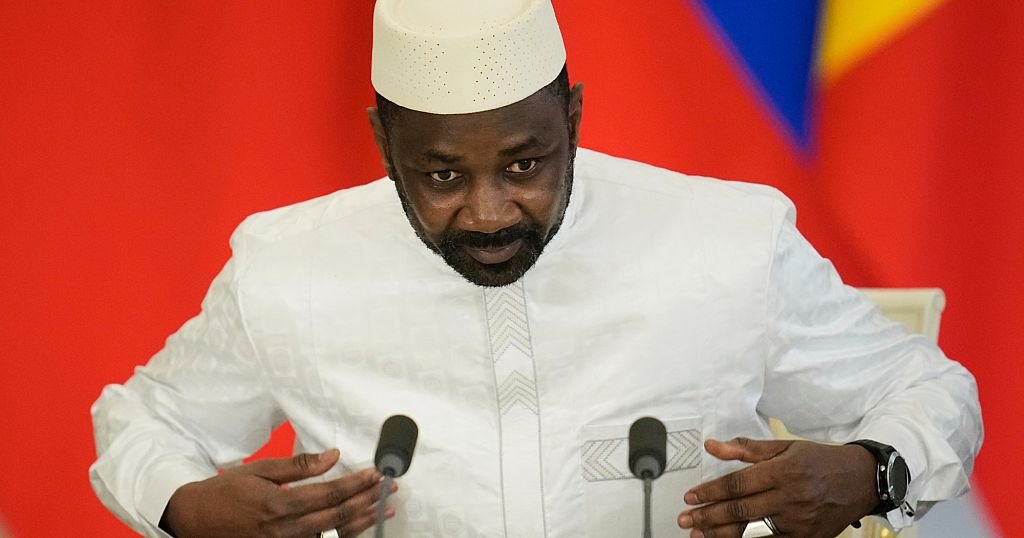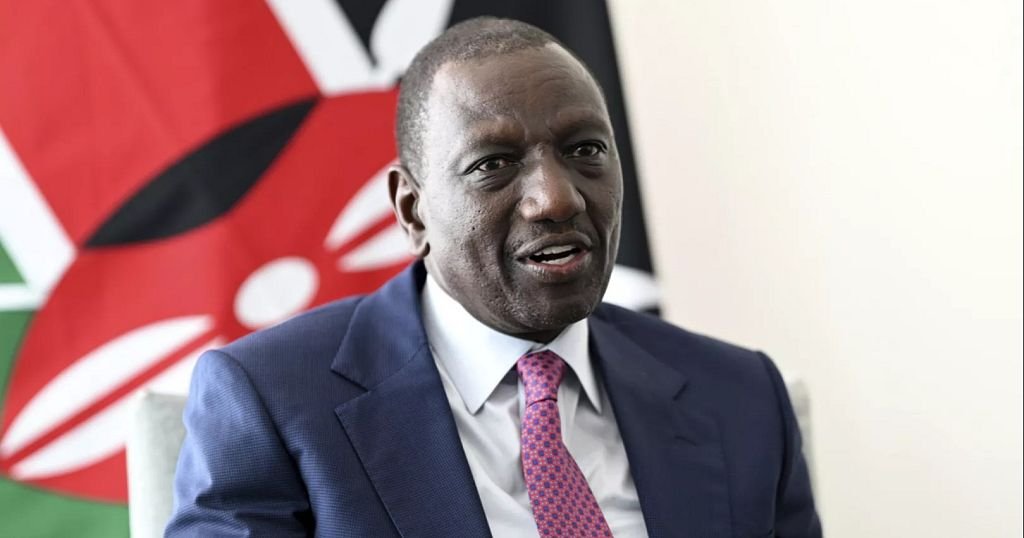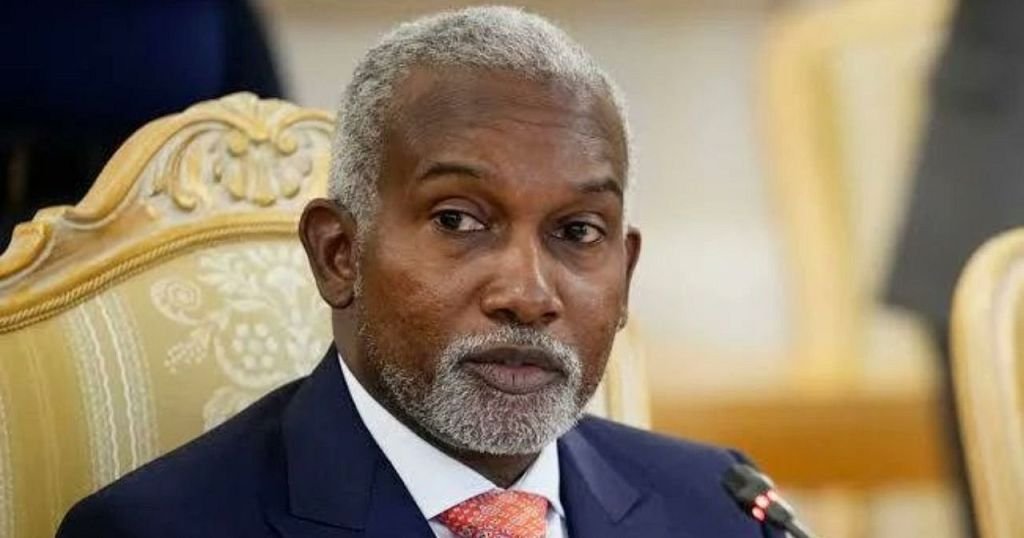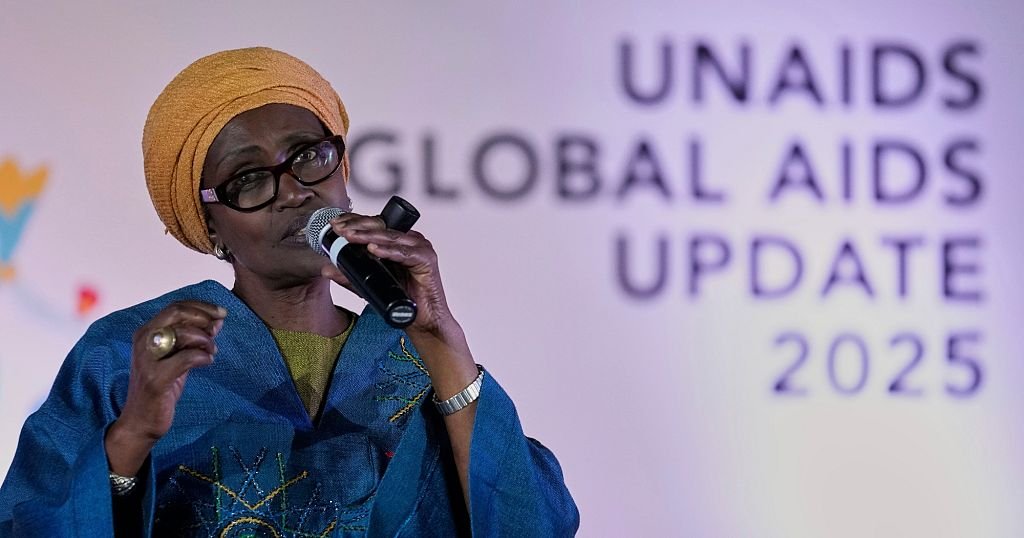Africa
Bill granting head of Mali’s junta, Gen. Assimi Goita, five more years in power signed into law

The head of Mali’s junta General Assimi Goita has granted himself a five-year presidential mandate, renewable “as many times as necessary” and without election, in a bill signed into law on Thursday.
The bill implemented recommendations of the national dialogue consultations organised by the military regime in April and boycotted by political parties. It was passed by the military-appointed legislative body last week.
The law, which Goita approved on Tuesday, allows him to lead the West African nation until at least 2030, despite the military government’s initial pledge to return to civilian rule in March 2024.
In May, he signed a decree dissolving all political parties. It coincided with a surge in kidnappings of pro-democracy activists in the capital, Bamako, and just days after a demonstration by several hundred activists.
Restrictions on freedom
The new law is the latest in a series of restrictions on freedoms by Mali’s military leadership to consolidate its power in the jihadist-hit Sahelian nation.
Goita has led the country since orchestrating two coups in 2020 and 2021 as an insurgency by jihadi groups linked to al-Qaida and the Islamic State group worsened.
Mali, a landlocked nation in the semiarid region of Sahel, has been embroiled in political instability that swept across West and Central Africa over the last decade.
Africa
Ruto’s $9M mega church sparks outrage amid Kenya’s crisis

Amid Kenya’s worst wave of anti-government protests in years and mounting economic hardship, President William Ruto is pressing ahead with plans to build a lavish mega church at his official residence. This project has ignited debate over the intersection of faith, power, and public accountability.
The construction of the Church in central Nairobi is estimated to cost KES 1,2 billion ($9,3 million) and fit upwards of 8.000 people, according to local media reports.
The grandiose project was met with criticism from many Kenyans, who have struggled under the ongoing cost-of-living crisis.
Economic hardships in Kenya have taken a toll on the popularity of the sitting President. Tensions escalated on Monday, when 31 people were killed and more than 500 were arrested in widespread anti-government protests.
The placement of a worship site on government grounds has prompted a legal challenge. Kenya’s high court is set to hear a petition by lawyer, Levy Munyeri, who argued that the mega church violates provisions in Kenya’s constitution, which denounces any state religion.
The President has so far been unfazed by the criticisms, “I am not going to ask anyone for an apology for building a church. The devil might be angry and can do what he wants,” Ruto said on July 4th, noting that he would pay for the Church with his own money.
“Ruto knows when push comes to shove in politics and other arms of government, he will get his way. He knows parliament cannot stop him”, said Dr. Denis Galava, Kenyan political researcher and journalist.
In an interview with Africanews, Galava points to recent developments in Kenya’s parliament, which make Ruto’s grasp on power solid despite political unrest.
Earlier this year, key allies of opposition leader Raila Odinga, were appointed to senior positions in Ruto’s cabinet, weakening the counterbalance to the sitting President.
“You can’t talk about a political movement that can stop him from doing anything, because parliament is now a lapdog”, Galava said.
Ruto is Kenya’s first evangelical Christian president. The 58-year-old politician put religion at the centre-stage of his 2022 election campaign, earning him the nickname ‘deputy Jesus’.
He has previously built a chapel in the compound at his former residence in the Karen suburb of Nairobi.
Africa
“I can’t do nuttin’ for ya man”, Nigerian Minister quotes Flavour Flav in rejection of Trump policy

Nigeria won’t accept 300 Venezuelan deportees from the U.S, Foreign Minister Yusuf Maitama Tuggar said in a TV interview on Thursday, following reports that the White House was pushing African leaders to take in illegal immigrants from third-party countries.
In a surprise move, Tuggar started quoting U.S rapper Flavour Flav as a guest on Channels Television’s ‘Politics Today’ in response to news of Washington’s latest deportation policy,
“You’ll remember af line from Flavour Flav: Flavour Flav has problems of his own, I can’t do nuttin’ for ya man”, Tuggar said, referencing the rapper’s famous 1990 track.
The quote follows reports by The Wall Street Journal that five African leaders participating in a summit at the White House from July 9-11 had received letters pushing them to accept migrants deported by the U.S. whose home countries refuse to take them back.
The U.S had also asked Nigeria to take in deportees, Tuggar said, but he argued it would be ‘unfair’ given current issues in the country,
”We have enough problems of our own. We cannot accept Venezuelan deportees to Nigeria for crying out loud”.
Instead, the Foreign Minister said that Nigeria was open to doing business with the U.S emphasising critical minerals and gas trade as potential avenues for future cooperation,
”Nigeria is in a very good position to continue a symbiotic relationship with the U.S”, he said.
While Nigeria appears to reject U.S deportees for now, other countries are facing mounting pressure to comply with Trump’s new immigration policy.
On Monday, South Sudan accepted eight men, including nationals from Myanmar, Cuba, Vietnam, Laos, and Mexico all convicted of serious crimes like murder and sexual assault.
Previous removals have gone to El Salvador and Costa Rica, and talks are reportedly ongoing with countries like Rwanda, Benin, and Moldova.
Africa
UN warns millions will die by 2029 if new funding for HIV programs isn’t found

Years of American-led investment into AIDS programs have reduced the number of people killed by the disease to the lowest levels seen in more than three decades and provided life-saving medicines for some of the world’s most vulnerable.
But in the last six months, the sudden withdrawal of U.S. money has caused a “systemic shock,” U.N. officials warned, adding that if the funding isn’t replaced, it could lead to more than 4 million AIDS-related deaths and 6 million more HIV infections by 2029.
A new UNAIDS report released Thursday said the funding losses have “already destabilized supply chains, led to the closure of health facilities, left thousands of health clinics without staff, set back prevention programs, disrupted HIV testing efforts and forced many community organizations to reduce or halt their HIV activities.”
It also said that it feared other major donors scaled back their support, reversing decades of progress against AIDS worldwide — and that the strong multilateral cooperation is in jeopardy because of wars, geopolitical shifts and climate change.
A ‘lifeline’ removed
The $4 billion that the United States pledged for the global HIV response for 2025 disappeared virtually overnight in January, when U.S. President Donald Trump ordered that all foreign aid be suspended and later moved to close the USAID.
Andrew Hill, an HIV expert at the University of Liverpool who is not connected to the United Nations, said that while Trump is entitled to spend U.S. money as he sees fit, “any responsible government would have given advance warning so countries could plan,” instead of stranding patients in Africa where clinics were closed overnight.
The U.S. President’s Emergency Plan for AIDS Relief, or PEPFAR, was launched in 2003 by U.S. President George W. Bush, the biggest-ever commitment by any country focused on a single disease.
UNAIDS called the program a “lifeline” for countries with high HIV rates, and said that it supported testing for 84.1 million people, treatment for 20.6 million, among other initiatives. According to data from Nigeria, PEPFAR also funded 99.9% of the country’s budget for medicines taken to prevent HIV.
U.N. Assistant Secretary-General Angeli Achrekar, a UNAIDS deputy executive director who was PEPFAR’s principal deputy coordinator until January 2023, said the program is under review by the Trump administration though Secretary of State Marco Rubio issued a waiver “to continue life-saving treatment.”
““The extent to which it will continue in the future, we don’t know,” she told a video news conference with U.N. reporters in New York. “We are cautiously hopeful that PEPFAR will continue to support both prevention and treatment services.”
A gap impossible to fill
In 2024, there were about 630,000 AIDS-related deaths worldwide, per a UNAIDS estimate — the figure has remained about the same since 2022 after peaking at about 2 million deaths in 2004.
Even before the U.S. funding cuts, progress against curbing HIV was uneven. UNAIDS said that half of all new infections are in sub-Saharan Africa.
Tom Ellman of Doctors Without Borders said that while some poorer countries were now moving to fund more of their own HIV programs, it would be impossible to fill the gap left by the U.S.
“There’s nothing we can do that will protect these countries from the sudden, vicious withdrawal of support from the U.S.,” said Ellman, head of the group’s South Africa medical unit.
Experts also fear another significant loss — data.
The U.S. paid for most HIV surveillance in African countries, including hospital, patient and electronic records, all of which has now abruptly ceased, according to Dr. Chris Beyrer, director of the Global Health Institute at Duke University.
“Without reliable data about how HIV is spreading, it will be incredibly hard to stop it,” he said.
-

 Asia5 days ago
Asia5 days agoIndonesia’s Mount Lewotobi Laki Laki erupts sending ash 11 miles into sky
-

 Africa4 days ago
Africa4 days agoCairo telecom fire injures 14, disrupts internet nationwide
-

 Asia3 days ago
Asia3 days agoA torpedoed US Navy ship escaped the Pacific in reverse, using coconut logs. Its sunken bow has just been found
-

 Sports4 days ago
Sports4 days ago‘Keep pumping’: The new dance inspiring Novak Djokovic’s quest for a record-equaling Wimbledon title
-

 Sports4 days ago
Sports4 days agoThe behind-the-scenes story of a WNBA controversy: Caitlin Clark, DiJonai Carrington and a journalist’s questions
-

 Europe4 days ago
Europe4 days agoHe was born to a US citizen soldier on an army base in Germany. Now he’s been deported to Jamaica, a country he’d never been to
-

 Sports3 days ago
Sports3 days agoWimbledon: The secrets behind the world’s fastest tennis serves
-

 Europe3 days ago
Europe3 days agoTrump promised 200 deals by now. He’s gotten 3, and 1 more is getting very close




